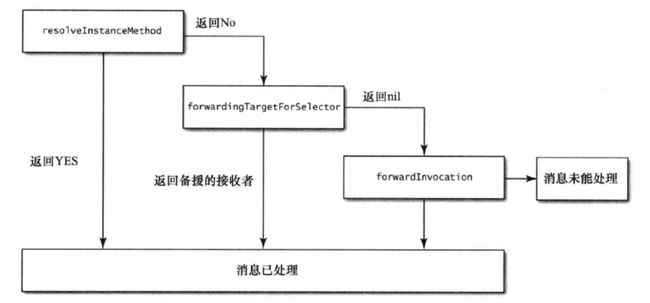- 如何解决跨域请求的问题(CORS)?
okhttp前端
文章目录引言理解CORS2.1CORS基本概念2.2同源策略与跨域分类CORS的核心机制3.1预检请求(PreflightRequest)3.2简单请求服务器端配置CORS4.1关键响应头4.2Node.js(Express)示例4.3其他后端语言配置前端处理CORS请求5.1XMLHttpRequest与FetchAPIXMLHttpRequest示例FetchAPI示例5.2使用第三方库(ax
- 【总结】Pytest vs Behave,BDD 测试框架哪家强?
软件测试pytestbehave
引言在测试驱动开发(TDD)和行为驱动开发(BDD)流行的今天,Pytest和Behave成为了Python生态中最常见的自动化测试框架。那么,究竟该选择哪一个?它们各自有哪些优缺点?本篇文章将为你全面解析!1.什么是Pytest?Pytest是一个强大且灵活的Python测试框架,适用于单元测试、功能测试和API测试。它支持简单的函数式测试,同时具备强大的插件机制。Pytest的核心特点:✅语法
- 关于CanvasRenderer.SyncTransform触发调用的机制
1)关于CanvasRenderer.SyncTransform触发调用的机制2)小游戏Spine裁剪掉帧问题3)DedicatedServer性能问题4).mp4视频放入RT进行渲染的性能分析闭坑指南这是第421篇UWA技术知识分享的推送,精选了UWA社区的热门话题,涵盖了UWA问答、社区帖子等技术知识点,助力大家更全面地掌握和学习。UWA社区主页:community.uwa4d.comUWAQ
- iOS进程增加内存上限的接口
memory
1)iOS进程增加内存上限的接口2).sommap内存占用排查的问题3)在使用RecastNavigation遇到的两个问题这是第420篇UWA技术知识分享的推送,精选了UWA社区的热门话题,涵盖了UWA问答、社区帖子等技术知识点,助力大家更全面地掌握和学习。UWA社区主页:community.uwa4d.comUWAQQ群:793972859MemoryQ:在打iOS包的时候注意到Xcode里有
- 医疗影像联邦学习可解释性算法研究
智能计算研究中心
其他
内容概要医疗影像分析领域的联邦学习技术正面临数据隐私保护与模型可解释性的双重挑战。本研究以跨机构医疗影像协作场景为核心,系统性探讨联邦学习框架下可解释性算法的创新路径,重点解决医疗AI模型在分布式训练中的透明度缺失问题。通过引入动态特征选择机制与可解释性注意力模块,算法在保持数据本地化处理的同时,实现了关键病灶特征的跨域关联与可视化解析。研究同步整合自动化数据增强流程与多维度评估指标(如F1值、召
- VMware ESXi 8.0U3c macOS Unlocke OEM BIOS 标准版和厂商定制版,已适配主流品牌服务器
esxi
VMwareESXi8.0U3cmacOSUnlocker&OEMBIOS标准版和厂商定制版ESXi8.0U3c标准版,Dell(戴尔)、HPE(慧与)、Lenovo(联想)、Inspur(浪潮)、Cisco(思科)、Hitachi(日立)、Fujitsu(富士通)、NEC(日电)定制版、Huawei(华为)OEM定制版请访问原文链接:https://sysin.org/blog/vmware-e
- 解决Spring Boot中Chrome浏览器Session ID频繁变动的问题
遥不可及~~斌
springbootchrome后端
解决SpringBoot中Chrome浏览器SessionID频繁变动的问题在使用SpringBoot实现RedisSession后,Chrome内核的浏览器(如Chrome、Edge等)可能会出现SessionID频繁变动的问题,而IE浏览器则表现正常。这通常与浏览器对Cookie的处理机制以及SpringSession的配置有关。本文将详细分析问题的原因,并提供相应的解决方案。问题原因分析1.
- 面试中JVM常被问到的问题以及对应的答案
酷爱码
经验分享面试jvm职场和发展
在面试中,关于JVM常被问到的问题以及对应的答案可能包括:什么是JVM?它的作用是什么?答:JVM是Java虚拟机的缩写,是Java程序运行的环境。它负责将Java源代码编译成字节码并运行在不同平台上。请解释一下JVM的内存结构。答:JVM内存结构主要包括堆内存、方法区、虚拟机栈、本地方法栈和程序计数器等部分。什么是Java的垃圾回收机制?答:Java的垃圾回收机制是通过不再被引用的对象由垃圾收集
- Canary
Sean_summer
安全web安全
定义:Canary是一种用以防护栈溢出的保护机制。原理:是在一个函数的入口处,先从fs/gs寄存器中取出一个4字节(eax,四字节通常是32位的文件)或者8字节(rax,通常是64位的文件)的值存到栈上,当函数结束是会检查这个栈上的值是否和存进去的值相同。通常在pwn题写exp是用的字符a,这样存储进缓冲区,将会覆盖原始的canary的值当canary被覆盖后,也就是原应为canary的位置被字符
- VMware ESXi 8.0U3d macOS Unlocker & OEM BIOS 标准版和厂商定制版,已适配主流品牌服务器
sysinside
VMwareESXiOEM
VMwareESXi8.0U3dmacOSUnlocker&OEMBIOS标准版和厂商定制版ESXi8.0U3d标准版,Dell(戴尔)、HPE(慧与)、Lenovo(联想)、Inspur(浪潮)、Cisco(思科)、Hitachi(日立)、Fujitsu(富士通)、NEC(日电)定制版、Huawei(华为)OEM定制版请访问原文链接:https://sysin.org/blog/vmware-e
- 高级java每日一道面试题-2025年3月06日-微服务篇[Eureka篇]-Eureka服务注册与发现是什么?
java我跟你拼了
java每日一道面试题java微服务eureka
如果有遗漏,评论区告诉我进行补充面试官:Eureka服务注册与发现是什么我回答:根据你提供的详细解析,结合之前的回答,我们可以更加全面地理解Eureka服务注册与发现机制,并补充一些关键点,特别是针对面试准备的内容。一、服务注册(ServiceRegistration)核心机制:当服务提供者启动时,它会通过EurekaClient向EurekaServer发送元数据。这些元数据包括但不限于IP地址
- ==操作符、equals方法和hashcode是什么?它们之前有什么区别?
小九没绝活
Java基础java开发语言java-ee
在Java中,==、equals()和hashCode()是用于对象比较和哈希管理的核心机制,但它们的作用和适用场景有本质区别。以下是它们的详细说明和对比:一.==操作符作用基本数据类型:比较两个变量的值是否相等对象引用:比较两个对象的内存地址是否相同(即是否指向同一个对象)特点不可重写直接基于底层内存或值进行比较示例inta=10;intb=10;System.out.println(a==b)
- 线程协作全攻略:5大核心机制破解并发编程难题
程序猿小白菜
后端java生态圈线程java线程协作
引言:从生产者-消费者问题看线程协作本质在电商订单处理系统中,每秒需处理数万个订单的创建与物流信息更新。当生产者线程与消费者线程因处理速度差异导致系统吞吐量骤降时,如何实现高效协作成为关键。本文将揭秘Java线程协作的五大核心机制,并通过工业级案例展示其应用场景。一、基础同步机制1.1等待通知机制(Wait/Notify)//经典生产者实现publicsynchronizedvoidproduce
- Shiro授权
斗-匕
oracle数据库
在Java安全领域,ApacheShiro以其强大的功能和灵活性备受开发者青睐。其中,授权机制是Shiro的核心功能之一,它确保了用户只能访问其被授权的资源。本文将深入探讨Shiro授权,涵盖静态和动态授权、权限、角色、隐式角色、显式角色、授权流程以及授权方式等方面。一、Shiro简介ApacheShiro是一个功能强大的Java安全框架,它提供了认证、授权、加密和会话管理等功能。Shiro的设计
- YUNBE云贝-PostgreSQL Vacuum详解:深入理解与实践
云贝教育-郑老师
postgresql数据库缓存sqldba
引言PostgreSQL作为一款功能强大、开源的关系型数据库管理系统,其性能优化机制中,“VACUUM”命令扮演着至关重要的角色。本文将对PostgreSQL的VACUUM操作进行全面解析,探讨其工作原理、类型以及如何在实际环境中合理应用。一、VACUUM基础概念1.1VACUUM的作用在PostgreSQL中,当数据被更新或删除时,系统并不会立即释放物理空间,而是将其标记为“可重用”。随着时间推
- Kafka 同步机制关键点 2分钟讲明白
大博士.J
kafka
ApacheKafka通过副本同步机制来保证数据的高可用性和可靠性。Kafka的同步机制主要涉及以下几个核心概念:副本(Replication)Kafka的每个Partition都会有多个副本(Replica),分为:Leader副本:负责处理生产者和消费者的所有请求。Follower副本:仅从Leader同步数据,不直接处理请求。副本数由replication.factor参数配置。例如:rep
- ARM:使用F103纯汇编点灯
一枝小雨
ARM内核arm开发汇编
0上节ARM体系结构解析:PC寄存器机制、三级流水线与C/汇编交互全揭秘-CSDN博客1纯汇编点灯主要是通过汇编代码实现下图逻辑:汇编代码实现:PRESERVE8THUMB;VevtorTableMappedtoAddress0atResetAREARESET,DATA,READONLYEXPORT__Vectors__VectorsDCD0DCDReset_Handler;ResetHandle
- Search after解决ES深度分页问题
Elastic开源社区
elasticsearch大数据searchafter深度分页ES
文章目录1、search_after的作用和意义2、search_after的工作原理3、search_after的使用方法4、注意事项5、与传统分页的对比6、总结search_after是Elasticsearch中用于实现深度分页的一种机制。相比于传统的from和size分页方式,search_after更适合处理大数据集的分页查询,因为它避免了深度分页带来的性能问题。1、search_aft
- c# 正则表达式基础知识
观无
c#正则表达式mysql
一、使用原理模式匹配机制:在C#中,正则表达式通过定义一种模式来描述文本的特征。例如,\d表示匹配任意一个数字字符。当使用正则表达式进行匹配时,正则表达式引擎会从输入文本的起始位置开始,逐个字符地将输入文本与模式进行比较。引擎尝试找到一个连续的字符序列,该序列与整个模式完全匹配。如果找到了这样的序列,则匹配成功;否则,匹配失败。回溯机制:当正则表达式中存在可选部分(如a?表示a可选出现一次或不出现
- SSL/TLS 和 SSH 区别
张紫娃
网络编程sslssh网络
SSL/TLS干啥的?:SSL(SecureSocketsLayer)和TLS(TransportLayerSecurity)是一种用于在网络通信中提供安全性的协议。它们的主要目的是在客户端(如浏览器)和服务器之间建立加密连接,确保数据传输的安全性和隐私性。SSL是由Netscape开发的一种早期的安全协议,TLS是SSL的继任者,修复了SSL中的许多安全漏洞。提供了更安全和高效的通信机制。SSL
- 网络协议与安全:前端安全防护之CORS/CSP/CSRF(3)
双囍菜菜
前端随记网络协议安全csrf
前端安全三剑客:CORS、CSP、CSRF防护实战手册文章目录前端安全三剑客:CORS、CSP、CSRF防护实战手册一、当安全防线失守:某社交平台的XSS噩梦二、同源策略:Web安全的基石与枷锁2.1同源定义与限制2.2现实中的妥协方案三、CORS:跨域资源共享的守门人3.1预检请求机制3.2服务端配置示例(Nginx)3.3前端实践注意四、CSP:堵住XSS的最后防线4.1策略配置解析4.2Re
- 消融实验(Ablation Study)
xwhking
深度学习机器学习深度学习消融实验
消融实验(AblationStudy)定义:消融实验是一种科学研究方法,通过逐步移除模型、算法或系统中的某个组件(如模块、层、特征、数据等),观察其对整体性能的影响,从而验证该组件的必要性和有效性。其名称来源于医学领域的“消融术”(切除部分组织以研究功能),在计算机视觉、机器学习和深度学习中被广泛用于分析模型设计。为什么要做消融实验?1.验证组件的有效性核心目的:确认模型中某个设计(如注意力机制、
- 案例驱动的 IT 团队管理:创新与突破之路:第二章 团队组建:从人才画像到生态构建-2.2.1星型架构 vs 网状架构对比
言析数智
案例驱动的IT团队管理:创新与突破之路IT项目管理星型架构网状架构
点击关注不迷路点击关注不迷路点击关注不迷路文章大纲星型架构vs网状架构:IT团队结构创新的双模选择引言:从网络拓扑到组织设计的范式迁移一、架构解析:技术原理与管理哲学的融合1.1星型架构:中心化控制体系1.2网状架构:分布式协作网络二、对比分析:六维能力评估模型2.1核心能力矩阵2.2适用场景对照三、混合架构创新:数字时代的第三选择3.1蜂巢式结构设计3.2动态平衡机制四、转型路线图:四阶段演进路
- AFSim仿真系统—01 架构介绍
仿真小课堂
架构
本栏目将对《AFSim2.9中文参考手册》进行持续更新,欢迎关注交流!获取本书全文和AFSIM其它资料,请联系作者~全部内容索引请看⬇️⬇️⬇️《AFSim2.9中文参考手册》-CSDN博客https://blog.csdn.net/henggesim/article/details/145566384目录一、核心架构二、核心应用三、核心服务Scenarios(场景)Simulations(仿真)
- Spring Boot拦截器(Interceptor)与过滤器(Filter)深度解析:区别、实现与实战指南
好龙7575
springboot后端java
SpringBoot拦截器(Interceptor)与过滤器(Filter)深度解析:区别、实现与实战指南一、核心概念对比1.本质区别维度过滤器(Filter)拦截器(Interceptor)规范层级Servlet规范(J2EE标准)SpringMVC框架机制作用范围所有请求(包括静态资源)只处理Controller请求依赖关系不依赖Spring容器完全集成SpringIOC容器执行顺序最先执行(
- Spring设计模式 八股速记 高层模块底层模块 依赖倒置原则 开闭原则 接口隔离原则
她说喜欢是装的.
#SpringBoot#JavaSEweb后端开发java开发语言cocoagithubmacosobjective-c数据库
目录高层模块底层模块一、定义与核心思想二、实现方式三、优点与价值四、典型应用场景五、与其他原则的关系示例说明依赖倒置原则一、定义与核心思想二、实现方式三、优点与价值四、典型应用场景五、与其他原则的关系示例说明自己理解开闭原则1.抽象化与接口设计2.封装与模块化3.多态性与继承机制4.依赖抽象而非具体实现5.设计原则的协同作用总结接口隔离原则一、核心定义二、与单一职责原则的区别三、应用场景与实现方式
- 工程化与框架系列(36)--前端监控告警实践
一进制ᅟᅠ
前端工程化与框架前端
前端监控告警实践引言前端监控是保障应用质量和用户体验的重要手段。本文将深入探讨前端监控的实现方案,包括性能监控、错误监控、用户行为监控等方面,以及相应的告警机制。监控系统概述前端监控系统主要包括以下方面:性能监控:页面加载、资源加载、接口性能等错误监控:JS错误、接口错误、资源加载错误等用户行为:PV/UV、点击行为、路由变化等业务监控:转化率、留存率、业务指标等告警系统:规则配置、通知分发、告警
- Android 面试(Java 篇)
约翰先森不喝酒
面试java面试android
Android面试(Java篇)一Java的继承机制二进程跟线程,以及线程的创建三简述wait()和sleep()的区别四如何终止一个线程五Synchronized(内置锁,线程同步)六Synchronized修饰的静态和非静态方法时为什么可以异步执行?七线程同步除了Synchronized还有别的方法么,区别在哪里八死锁产生的原因以及预防措施九Synchronized和Lock的区别十Handl
- 《量子门与AI神经元:计算世界的奇妙碰撞》
程序猿阿伟
人工智能量子计算
在当今科技飞速发展的时代,量子计算和人工智能作为前沿领域,正不断颠覆我们对计算和智能的认知。量子门操作和AI中的神经元计算过程,分别作为这两大领域的核心机制,看似处于不同维度,却有着千丝万缕的联系,它们之间的区别与关联,犹如一把钥匙,为我们打开了通往更高级计算与智能世界的大门。量子门操作是量子计算的基础,它利用量子力学的奇妙特性,如叠加和纠缠,对量子比特进行操控。量子比特,作为量子信息的基本单元,
- 为什么Django能有效防御CSRF攻击?
字节王德发
pythondjangocsrfokhttp
在当今这个互联网高度发达的时代,Web安全问题层出不穷,其中跨站请求伪造(CSRF,Cross-SiteRequestForgery)就是一个比较常见的威胁。攻击者利用用户的身份信息,发送恶意请求,改变用户的属性或执行用户不想要的操作,这就会造成很大的损失。Django作为一个流行的Web框架,内置了一些机制来安全地防御这种攻击。今天,就让我们深入了解一下Django是如何抵御CSRF攻击的,尤其
- 集合框架
天子之骄
java数据结构集合框架
集合框架
集合框架可以理解为一个容器,该容器主要指映射(map)、集合(set)、数组(array)和列表(list)等抽象数据结构。
从本质上来说,Java集合框架的主要组成是用来操作对象的接口。不同接口描述不同的数据类型。
简单介绍:
Collection接口是最基本的接口,它定义了List和Set,List又定义了LinkLi
- Table Driven(表驱动)方法实例
bijian1013
javaenumTable Driven表驱动
实例一:
/**
* 驾驶人年龄段
* 保险行业,会对驾驶人的年龄做年龄段的区分判断
* 驾驶人年龄段:01-[18,25);02-[25,30);03-[30-35);04-[35,40);05-[40,45);06-[45,50);07-[50-55);08-[55,+∞)
*/
public class AgePeriodTest {
//if...el
- Jquery 总结
cuishikuan
javajqueryAjaxWebjquery方法
1.$.trim方法用于移除字符串头部和尾部多余的空格。如:$.trim(' Hello ') // Hello2.$.contains方法返回一个布尔值,表示某个DOM元素(第二个参数)是否为另一个DOM元素(第一个参数)的下级元素。如:$.contains(document.documentElement, document.body); 3.$
- 面向对象概念的提出
麦田的设计者
java面向对象面向过程
面向对象中,一切都是由对象展开的,组织代码,封装数据。
在台湾面向对象被翻译为了面向物件编程,这充分说明了,这种编程强调实体。
下面就结合编程语言的发展史,聊一聊面向过程和面向对象。
c语言由贝尔实
- linux网口绑定
被触发
linux
刚在一台IBM Xserver服务器上装了RedHat Linux Enterprise AS 4,为了提高网络的可靠性配置双网卡绑定。
一、环境描述
我的RedHat Linux Enterprise AS 4安装双口的Intel千兆网卡,通过ifconfig -a命令看到eth0和eth1两张网卡。
二、双网卡绑定步骤:
2.1 修改/etc/sysconfig/network
- XML基础语法
肆无忌惮_
xml
一、什么是XML?
XML全称是Extensible Markup Language,可扩展标记语言。很类似HTML。XML的目的是传输数据而非显示数据。XML的标签没有被预定义,你需要自行定义标签。XML被设计为具有自我描述性。是W3C的推荐标准。
二、为什么学习XML?
用来解决程序间数据传输的格式问题
做配置文件
充当小型数据库
三、XML与HTM
- 为网页添加自己喜欢的字体
知了ing
字体 秒表 css
@font-face {
font-family: miaobiao;//定义字体名字
font-style: normal;
font-weight: 400;
src: url('font/DS-DIGI-e.eot');//字体文件
}
使用:
<label style="font-size:18px;font-famil
- redis范围查询应用-查找IP所在城市
矮蛋蛋
redis
原文地址:
http://www.tuicool.com/articles/BrURbqV
需求
根据IP找到对应的城市
原来的解决方案
oracle表(ip_country):
查询IP对应的城市:
1.把a.b.c.d这样格式的IP转为一个数字,例如为把210.21.224.34转为3524648994
2. select city from ip_
- 输入两个整数, 计算百分比
alleni123
java
public static String getPercent(int x, int total){
double result=(x*1.0)/(total*1.0);
System.out.println(result);
DecimalFormat df1=new DecimalFormat("0.0000%");
- 百合——————>怎么学习计算机语言
百合不是茶
java 移动开发
对于一个从没有接触过计算机语言的人来说,一上来就学面向对象,就算是心里上面接受的了,灵魂我觉得也应该是跟不上的,学不好是很正常的现象,计算机语言老师讲的再多,你在课堂上面跟着老师听的再多,我觉得你应该还是学不会的,最主要的原因是你根本没有想过该怎么来学习计算机编程语言,记得大一的时候金山网络公司在湖大招聘我们学校一个才来大学几天的被金山网络录取,一个刚到大学的就能够去和
- linux下tomcat开机自启动
bijian1013
tomcat
方法一:
修改Tomcat/bin/startup.sh 为:
export JAVA_HOME=/home/java1.6.0_27
export CLASSPATH=$CLASSPATH:$JAVA_HOME/lib/tools.jar:$JAVA_HOME/lib/dt.jar:.
export PATH=$JAVA_HOME/bin:$PATH
export CATALINA_H
- spring aop实例
bijian1013
javaspringAOP
1.AdviceMethods.java
package com.bijian.study.spring.aop.schema;
public class AdviceMethods {
public void preGreeting() {
System.out.println("--how are you!--");
}
}
2.beans.x
- [Gson八]GsonBuilder序列化和反序列化选项enableComplexMapKeySerialization
bit1129
serialization
enableComplexMapKeySerialization配置项的含义
Gson在序列化Map时,默认情况下,是调用Key的toString方法得到它的JSON字符串的Key,对于简单类型和字符串类型,这没有问题,但是对于复杂数据对象,如果对象没有覆写toString方法,那么默认的toString方法将得到这个对象的Hash地址。
GsonBuilder用于
- 【Spark九十一】Spark Streaming整合Kafka一些值得关注的问题
bit1129
Stream
包括Spark Streaming在内的实时计算数据可靠性指的是三种级别:
1. At most once,数据最多只能接受一次,有可能接收不到
2. At least once, 数据至少接受一次,有可能重复接收
3. Exactly once 数据保证被处理并且只被处理一次,
具体的多读几遍http://spark.apache.org/docs/lates
- shell脚本批量检测端口是否被占用脚本
ronin47
#!/bin/bash
cat ports |while read line
do#nc -z -w 10 $line
nc -z -w 2 $line 58422>/dev/null2>&1if[ $?-eq 0]then
echo $line:ok
else
echo $line:fail
fi
done
这里的ports 既可以是文件
- java-2.设计包含min函数的栈
bylijinnan
java
具体思路参见:http://zhedahht.blog.163.com/blog/static/25411174200712895228171/
import java.util.ArrayList;
import java.util.List;
public class MinStack {
//maybe we can use origin array rathe
- Netty源码学习-ChannelHandler
bylijinnan
javanetty
一般来说,“有状态”的ChannelHandler不应该是“共享”的,“无状态”的ChannelHandler则可“共享”
例如ObjectEncoder是“共享”的, 但 ObjectDecoder 不是
因为每一次调用decode方法时,可能数据未接收完全(incomplete),
它与上一次decode时接收到的数据“累计”起来才有可能是完整的数据,是“有状态”的
p
- java生成随机数
cngolon
java
方法一:
/**
* 生成随机数
* @author
[email protected]
* @return
*/
public synchronized static String getChargeSequenceNum(String pre){
StringBuffer sequenceNum = new StringBuffer();
Date dateTime = new D
- POI读写海量数据
ctrain
海量数据
import java.io.FileOutputStream;
import java.io.OutputStream;
import org.apache.poi.xssf.streaming.SXSSFRow;
import org.apache.poi.xssf.streaming.SXSSFSheet;
import org.apache.poi.xssf.streaming
- mysql 日期格式化date_format详细使用
daizj
mysqldate_format日期格式转换日期格式化
日期转换函数的详细使用说明
DATE_FORMAT(date,format) Formats the date value according to the format string. The following specifiers may be used in the format string. The&n
- 一个程序员分享8年的开发经验
dcj3sjt126com
程序员
在中国有很多人都认为IT行为是吃青春饭的,如果过了30岁就很难有机会再发展下去!其实现实并不是这样子的,在下从事.NET及JAVA方面的开发的也有8年的时间了,在这里在下想凭借自己的亲身经历,与大家一起探讨一下。
明确入行的目的
很多人干IT这一行都冲着“收入高”这一点的,因为只要学会一点HTML, DIV+CSS,要做一个页面开发人员并不是一件难事,而且做一个页面开发人员更容
- android欢迎界面淡入淡出效果
dcj3sjt126com
android
很多Android应用一开始都会有一个欢迎界面,淡入淡出效果也是用得非常多的,下面来实现一下。
主要代码如下:
package com.myaibang.activity;
import android.app.Activity;import android.content.Intent;import android.os.Bundle;import android.os.CountDown
- linux 复习笔记之常见压缩命令
eksliang
tar解压linux系统常见压缩命令linux压缩命令tar压缩
转载请出自出处:http://eksliang.iteye.com/blog/2109693
linux中常见压缩文件的拓展名
*.gz gzip程序压缩的文件
*.bz2 bzip程序压缩的文件
*.tar tar程序打包的数据,没有经过压缩
*.tar.gz tar程序打包后,并经过gzip程序压缩
*.tar.bz2 tar程序打包后,并经过bzip程序压缩
*.zi
- Android 应用程序发送shell命令
gqdy365
android
项目中需要直接在APP中通过发送shell指令来控制lcd灯,其实按理说应该是方案公司在调好lcd灯驱动之后直接通过service送接口上来给APP,APP调用就可以控制了,这是正规流程,但我们项目的方案商用的mtk方案,方案公司又没人会改,只调好了驱动,让应用程序自己实现灯的控制,这不蛋疼嘛!!!!
发就发吧!
一、关于shell指令:
我们知道,shell指令是Linux里面带的
- java 无损读取文本文件
hw1287789687
读取文件无损读取读取文本文件charset
java 如何无损读取文本文件呢?
以下是有损的
@Deprecated
public static String getFullContent(File file, String charset) {
BufferedReader reader = null;
if (!file.exists()) {
System.out.println("getFull
- Firebase 相关文章索引
justjavac
firebase
Awesome Firebase
最近谷歌收购Firebase的新闻又将Firebase拉入了人们的视野,于是我做了这个 github 项目。
Firebase 是一个数据同步的云服务,不同于 Dropbox 的「文件」,Firebase 同步的是「数据」,服务对象是网站开发者,帮助他们开发具有「实时」(Real-Time)特性的应用。
开发者只需引用一个 API 库文件就可以使用标准 RE
- C++学习重点
lx.asymmetric
C++笔记
1.c++面向对象的三个特性:封装性,继承性以及多态性。
2.标识符的命名规则:由字母和下划线开头,同时由字母、数字或下划线组成;不能与系统关键字重名。
3.c++语言常量包括整型常量、浮点型常量、布尔常量、字符型常量和字符串性常量。
4.运算符按其功能开以分为六类:算术运算符、位运算符、关系运算符、逻辑运算符、赋值运算符和条件运算符。
&n
- java bean和xml相互转换
q821424508
javabeanxmlxml和bean转换java bean和xml转换
这几天在做微信公众号
做的过程中想找个java bean转xml的工具,找了几个用着不知道是配置不好还是怎么回事,都会有一些问题,
然后脑子一热谢了一个javabean和xml的转换的工具里,自己用着还行,虽然有一些约束吧 ,
还是贴出来记录一下
顺便你提一下下,这个转换工具支持属性为集合、数组和非基本属性的对象。
packag
- C 语言初级 位运算
1140566087
位运算c
第十章 位运算 1、位运算对象只能是整形或字符型数据,在VC6.0中int型数据占4个字节 2、位运算符: 运算符 作用 ~ 按位求反 << 左移 >> 右移 & 按位与 ^ 按位异或 | 按位或 他们的优先级从高到低; 3、位运算符的运算功能: a、按位取反: ~01001101 = 101
- 14点睛Spring4.1-脚本编程
wiselyman
spring4
14.1 Scripting脚本编程
脚本语言和java这类静态的语言的主要区别是:脚本语言无需编译,源码直接可运行;
如果我们经常需要修改的某些代码,每一次我们至少要进行编译,打包,重新部署的操作,步骤相当麻烦;
如果我们的应用不允许重启,这在现实的情况中也是很常见的;
在spring中使用脚本编程给上述的应用场景提供了解决方案,即动态加载bean;
spring支持脚本

